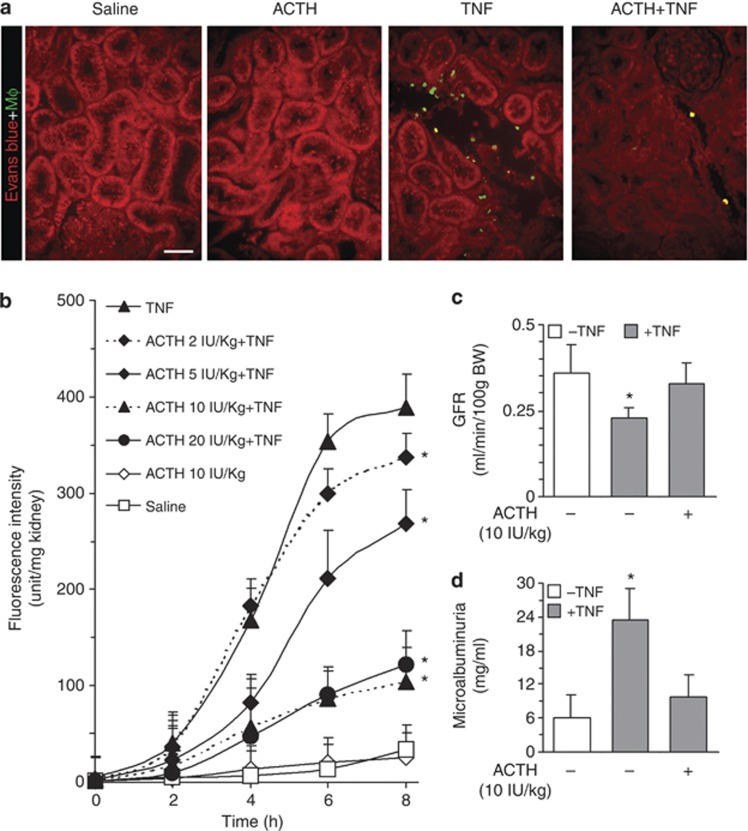Figure 2.
Adrenocorticotropic hormone (ACTH) gel prevents acute renal injury in a dose-dependent manner and prominently improves kidney dysfunction at an optimal dose. Rats were treated with ACTH gel and tumor necrosis factor (TNF) as described in Figure 1 and were killed at the indicated time. To estimate an optimal kidney-protective dose of ACTH gel, fluorescence-labeled rat alveolar macrophage (RAM) cells were infused into the carotid artery 60 min before killing. Kidney sections were counterstained with Evans blue (red) to visualize and evaluate RAM sequestration (green; a), which was further quantified by (b) fluorometric analysis of kidney homogenates; *P<0.05 versus TNF-alone-treated group (n=5); bar=100 μm in a. (c) At 10 IU/kg, ACTH gel significantly attenuates TNF-impaired glomerular filtration rate (GFR) as estimated by inulin clearance; *P<0.05 versus other groups (n=5). (d) Albumin levels in the collected ureteral urine were measured by enzyme-linked immunosorbent assay and demonstrated that ACTH gel at 10 IU/kg markedly abrogates TNF-induced microalbuminuria. *P<0.05 versus other groups (n=5). BW, body weight.

